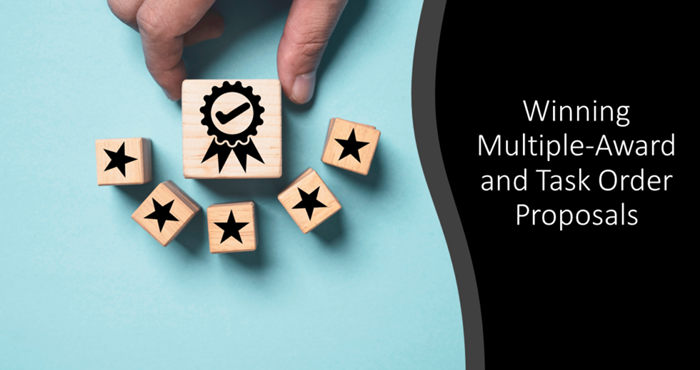Description
This is a two-day course on developing a winning federal Government cost volume. This Government contract pricing training discusses all aspects of winning cost volumes, aimed at both finance professionals and capture and proposal managers who are just starting to delve into the intricacies of Government pricing.
This course is composed of 50 percent lecture, 40 percent exercises, and 10 percent discussion.
The experts who teach our business development, capture, and proposal training are highly experienced currently practicing proposal professionals whose years of successful experience in Government acquisition and training allow them to offer valuable insights to our students. Our instructors can answer tough questions as they come up during the course. They can also tailor the material to their students’ specific challenges, and share their experience based on the most current realities.
Cost volume development training starts with cost proposal literacy. it shows differences between cost, price, price strategy, and price to win, and delves into such cost buildup elements as fringe, overhead, G&A, and fee. It covers allowability, allocability, and reasonableness of Government costs, and a slew of other important rules. It then dives into how the Government evaluates cost proposals so that you know what happens “behind the curtain.” It discusses cost proposal management during capture, including competitor price analysis and price to win fundamentals. It then dives into assumptions to set boundaries around cost, and techniques for bridging the gap between proposal manager leading the technical proposal team, and those in your company who are pricing Government contracts.
The second part of the class focuses on less practiced cost volume techniques such as developing a highly persuasive cost proposal narrative, developing basis of estimates (BOEs) and work breakdown structure (WBS), specific strategies for developing winning cost volumes while maximizing your profit and reducing risk given the specific contract type, refining your cost proposal, and more.
Most often, price is the most important part of writing proposals for Government contracts, as it differentiates you from competition that may be technically equal. It is especially true when the Government uses Lowest Price Technically Acceptable (LPTA) evaluation criteria instead of Best Value. Even when it is a Best Value procurement, the lowest bidder will most likely get the award. Most companies, however, miss the most important elements of process and deliverable for the cost volume, and fail to shine in an area where they could dominate. Take this course to maximize your Government price proposal win probability.
- Understanding the basics and principles of creating a cost volume.
- Understanding how contract type influences Government proposal pricing.
- Implementing proposal pricing strategies for best value versus lowest price technically acceptable proposals.
- Winning on price.
- Handling cost volumes if someone is not a numbers person.
- Understanding how cost proposal evaluation affects the development process.
- Influencing Government evaluators to grade your cost volume most favorably.
- Developing a price-to-win (PTW) analysis that incorporates competitive analysis, program intelligence, and maximizes win probability (Pwin).
- Using your proposal resources most effectively on the cost volume.
- Applying tools of persuasion for the cost and business volume.
- Refining the cost volume for maximum polish and punch.
- Developing and collecting the best assumptions out there to put clear boundaries around your price proposal.
- Developing Work Breakdown Structures (WBS).
- Using Bases of Estimate (BOE) to ghost your competitors and discredit low-ballers who are seeking to buy their way into a Government contract.

















